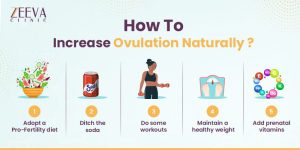
During pregnancy, the nutritional needs of a mother increase to support the growth and development of the baby. It is essential to consume a balanced diet that provides all the necessary nutrients for both the mother and the baby.
What to Eat During Pregnancy
It is important to include a variety of nutrient-rich foods in your diet during pregnancy. Some key nutrients to focus on include:
Folic Acid: Found in leafy green vegetables, beans, and citrus fruits, folic acid helps prevent neural tube defects in the baby.
Calcium: Dairy products, leafy greens, and fortified foods are good sources of calcium, which is essential for bone development.
Iron: Red meat, poultry, and beans are rich in iron, which helps prevent anemia and supports the baby’s growth.
Protein: Eggs, lean meat, fish, and dairy are good sources of protein, which is essential for the baby’s growth and development.
Foods to Avoid During Pregnancy
There are certain foods that should be avoided during pregnancy to minimize the risk of complications. Some foods to avoid include:
Raw or undercooked meat, poultry, and seafood: These foods can contain harmful bacteria that can pose a risk to the baby.
Unpasteurized dairy products: These products can contain harmful bacteria that can affect the mother and the baby.
High-mercury fish: Certain types of fish, such as shark, swordfish, and king mackerel, contain high levels of mercury, which can be harmful to the baby’s development.
Processed foods: Processed foods high in sugar, salt, and unhealthy fats should be avoided as they provide little nutritional value.
Healthy Eating Habits During Pregnancy
In addition to focusing on the right foods to eat, it is important to develop healthy eating habits during pregnancy. Some tips for healthy eating during pregnancy include:
Stay hydrated by drinking plenty of water throughout the day.
Eat small, frequent meals to help manage nausea and prevent digestive issues.
Include a variety of fruits and vegetables in your diet to ensure you are getting a wide range of nutrients.
Avoid excessive caffeine and sugary drinks, opting for water or herbal teas instead.
Consulting a Healthcare Provider
It is important to consult with your healthcare provider before making any significant changes to your diet during pregnancy. They can provide personalized advice and recommendations based on your individual needs and health status.
Overall, proper nutrition plays a crucial role in supporting a healthy pregnancy and ensuring the well-being of both the mother and the baby. By focusing on a balanced diet, avoiding potential risks, and developing healthy eating habits, you can promote a positive and nourishing experience during this special time.

